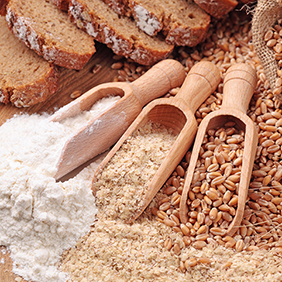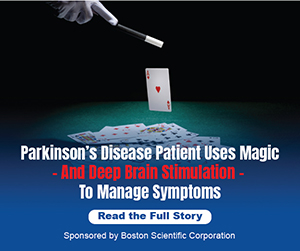
Photo: Deposit Photos
By the looks of the gluten-free offerings on most restaurant menus these days, you would think the world has celiac disease. Supermarkets are cashing in, too, on the trendy food-intolerance craze. Just look at the aisles devoted to gluten-free foods from breads and cereals to pastas and snacks.
However, going gluten-free might not promise all the long-term health benefits that it is rumored to. Cutting out wheat without the advisement of a doctor could actually be detrimental to your health.
Dr. John Douillard DC, CAP, author of Eat Wheat, has discovered why food sensitivity has become so commonplace and also some compromises for eating gluten without suffering real or perceived side effects.
His approach offers solid advice on how to choose the right grains and wheat to sustain your body and reduce many health risks.
If you’ve already gone gluten-free, don’t be discouraged. Dr. Douillard also provides some professional advice for reintroducing wheat into your diet.
Being Free of Gluten-Free
By Dr. John Douillard
With one-third of the American population (or 107 million people) avoiding gluten, the gluten-free bubble is bursting. Finally, science has caught up with the hype! As it turns out, gluten sensitivity is a symptom of a more serious problem—processed food poisoning.
The evidence is mounting against any health benefits for going gluten-free. In a Harvard study that followed more than 110,000 adults from 1986 to 2010, the relationship between gluten intake and heart disease was evaluated. Each participant was given a comprehensive 131-item food questionnaire every four years for the duration of the study. And the researchers concluded that a gluten-free diet won’t help your heart and may even hurt it!
The researchers adjusted the results for the amount of refined grains that were consumed by the study group that ate the most gluten, and the heart disease risk soared. Refined grains lack heart-healthy fiber, which is abundant in whole wheat. When refined grains were taken out of the equation, the group who ate the most gluten from whole wheat and gluten-rich grains saw a 15 percent reduction in heart disease risk, compared to the group who ate the lowest amount of gluten.
The Power of Whole Wheat and Whole Grains
Refined grains, like all refined and processed foods, have a high glycemic index, are generally more inflammatory, and pose great health risks. Whole wheat, however, has shown to reduce inflammation, lower Type 2 diabetes risk, and reduce the risk of Alzheimer’s disease in study after study.
In another study, a diet of processed foods increased the risk of metabolic syndrome by a whopping 141 percent. Metabolic syndrome includes:
• Abdominal obesity
• High triglycerides
• Low HDLs
• High blood pressure
• High blood sugar
In the same study, those who ate more whole grains, including wheat, reduced their risk of metabolic syndrome by 38 percent.
In an observational study with almost 200,000 people, the study group who included the most gluten in their diets had the lowest risk of Type 2 diabetes, compared to the group who ate the least amount of gluten. Then in another study, refined grains increased the risk of diabetes, while whole grains lowered Type 2 diabetes risk.
A Gluten-Free Diet Could Compromise Your Immune System
Perhaps the most dangerous aspect of a gluten-free diet is the growing body of evidence linking it to a compromised immune system:
1. In one study, mercury levels were four times higher in those who ate a gluten-free diet, compared to those who included wheat and gluten in their diet.
2. In another study, beneficial gut bugs decreased and harmful microbes increased in those who ate a gluten-free diet, compared to those who included wheat and gluten in their diet.
3. Finally, in another study, the number of immune-boosting killer T cells decreased in those who ate a gluten-free diet, compared to those who included wheat and gluten in their diet.
Tips on Relearning How to Eat Healthy Wheat:
• Bread should have three or four ingredients — organic whole wheat, salt, water, and maybe an organic starter.
• Bread should get hard and stale in one day. Avoid bread that stays soft for weeks — this means that it contains deadly cooked oils as preservatives.
• Read labels. If the food has an ingredient that you cannot pronounce, don’t buy it.
• Look for stoneground, sourdough, soaked, or sprouted whole grain breads. Look in the refrigerated section.
• Avoid any packaged foods or breads that have cooked or baked vegetable oils. They are used as preservatives to extend shelf life, but they may be shortening your life!
• Avoid any wheat products that have added sugar or sweeteners in the ingredients.












